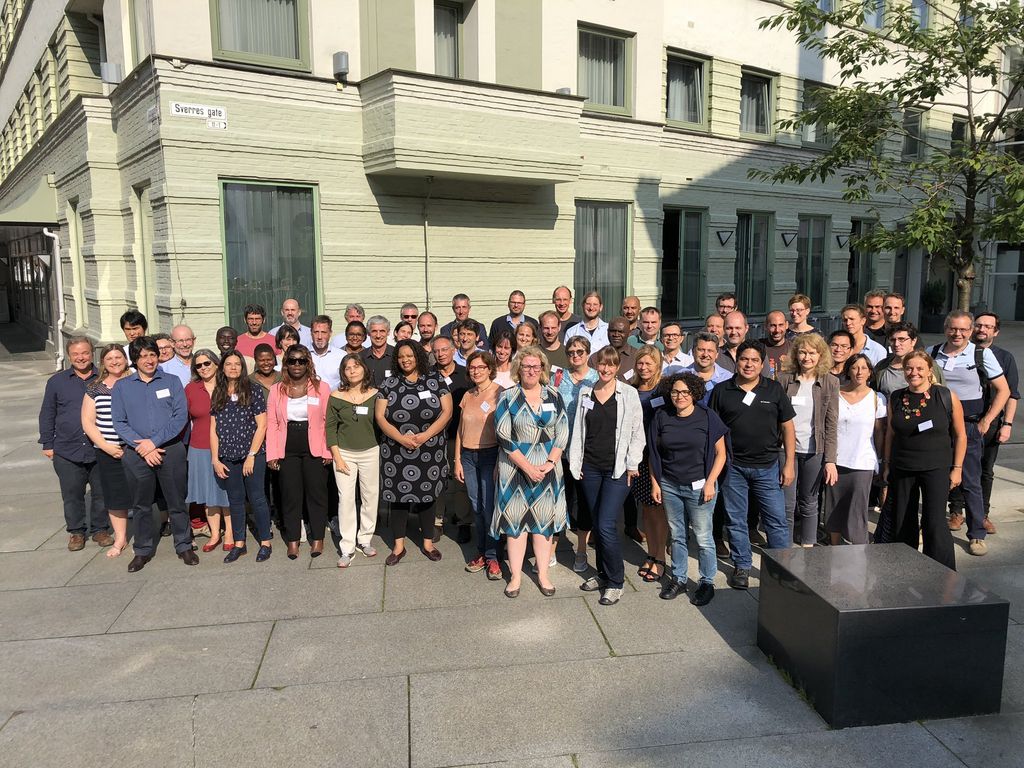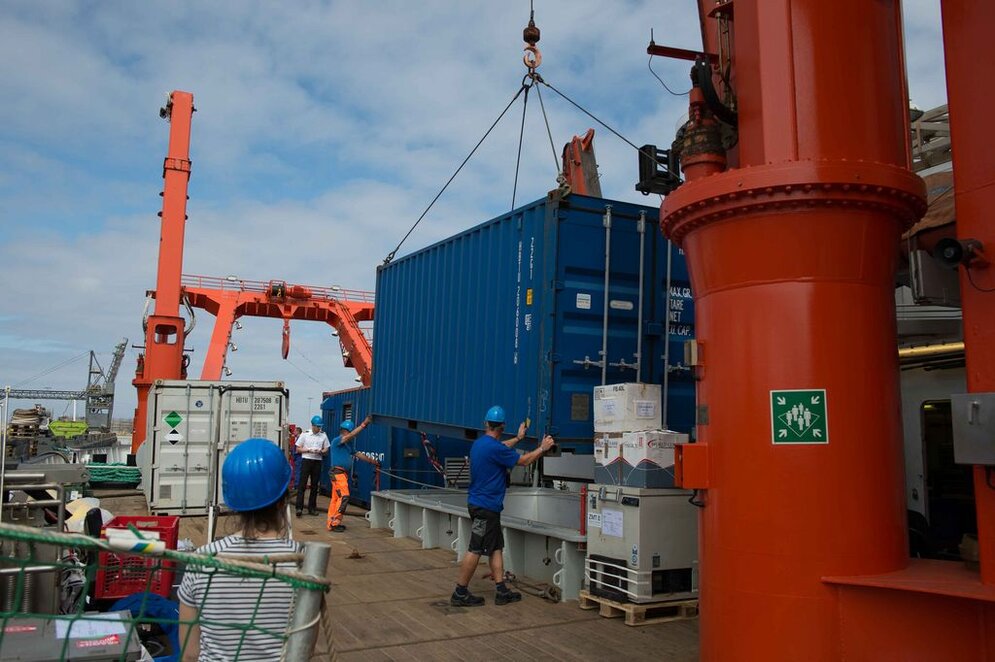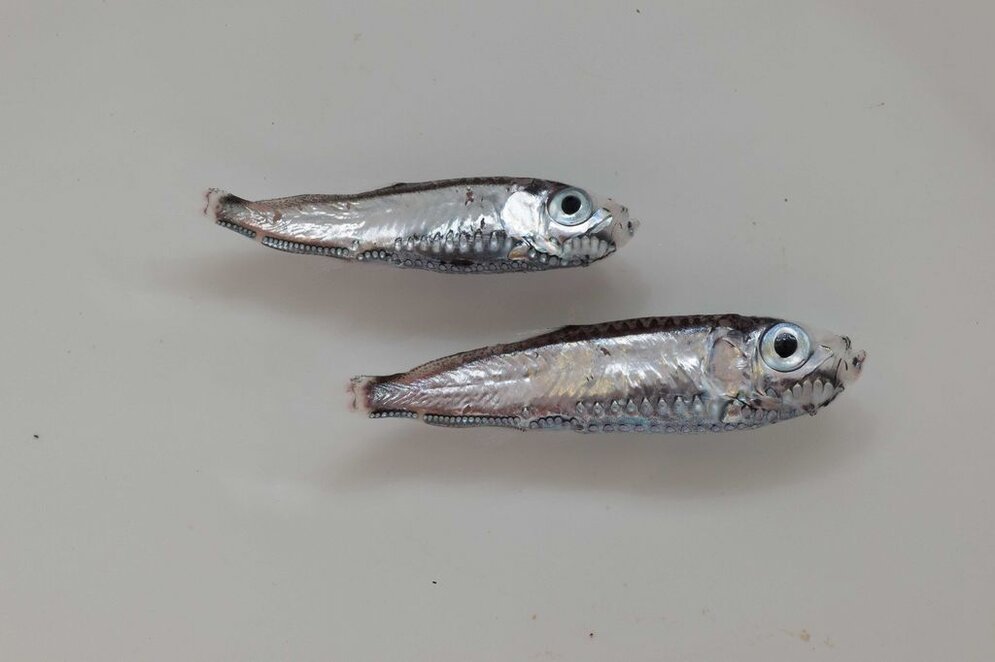Project
Shedding light on the South Atlantic: a status assessment
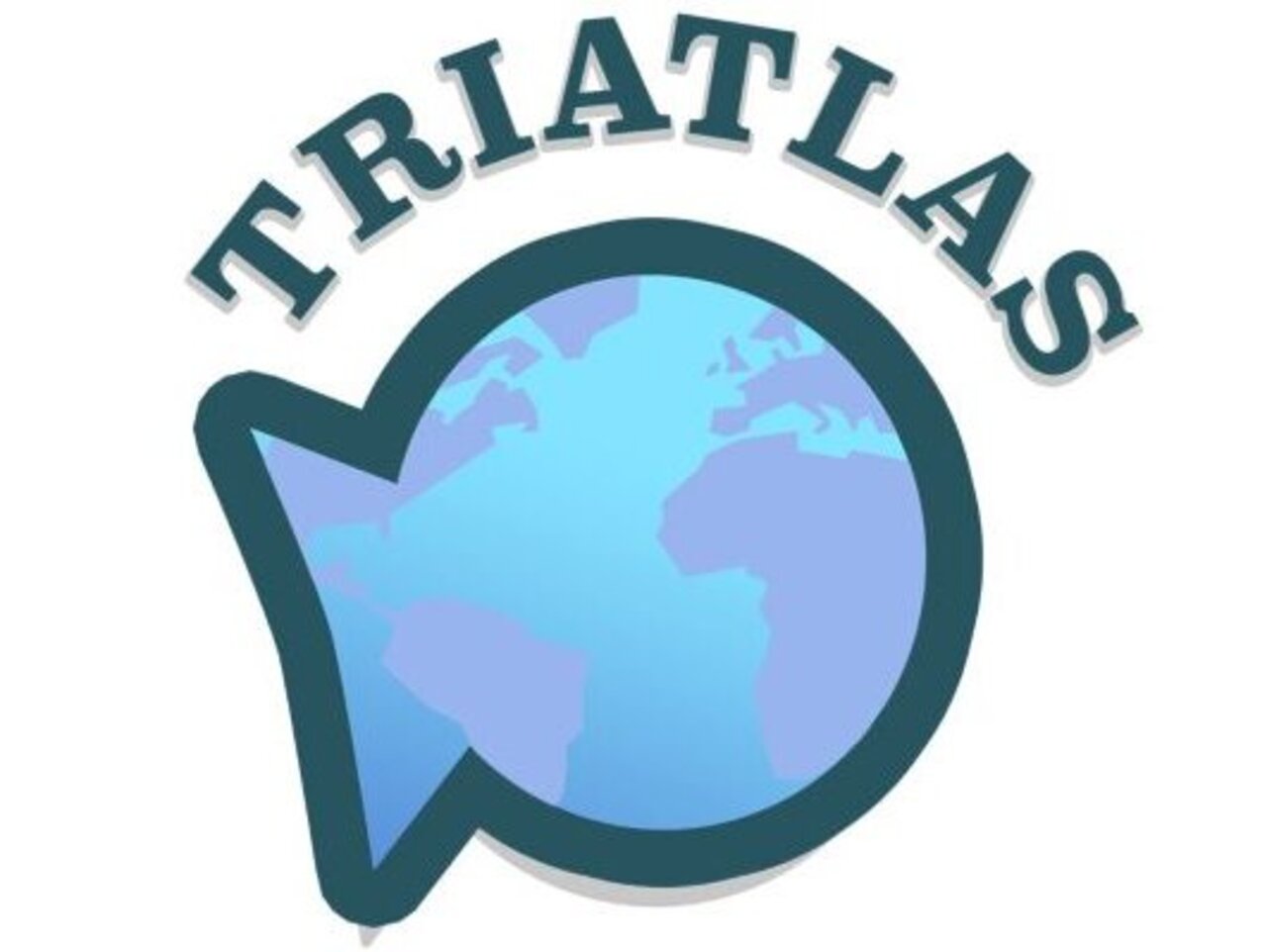
South and Tropical Atlantic climate-based marine ecosystem prediction for sustainable management
In the TRIATLAS project, scientists from Europe, Brazil and southern Africa are comprehensively investigating the current state, driving forces and potential future of South Atlantic regions.
Background and Objective
In the TRIATLAS project with 35 participating institutions, the South Atlantic is intensively studied – from ocean currents, phyto- and zooplankton to fish and marine mammals at the top of the food chain, as well as human activities affecting and being affected by marine ecosystems. At the Thünen Institute for Sea Fisheries, we are working in a sub-project on mesopelagic fish.
The Mesopelagic is the twilight zone of the open ocean in 200 to 1000 meters water depth, above the actual deep sea. The little sunlight that reaches these depths is not sufficient for photosynthesis. The fish are adapted to these conditions, among other things with low metabolism, light organs, and nocturnal migrations to shallower depths. The ecological importance of the mesopelagic fauna is often underestimated. We analyse the biodiversity of these communities, their distribution patterns and their food relationships in the southern Atlantic.
Our scientific aim is to close knowledge gaps about the state and seasonal dynamics of community structures, vertical migrations and food webs of mesopelagic fish in the South Atlantic. This knowledge helps to understand how the mesopelagic is influenced by fisheries and climate, what relevance it has as a food source for commercial fish species, and what role it plays in the Earth's carbon pump.
Another objective of the TRIATLAS project is to strengthen marine research in countries bordering the South Atlantic. The Thünen Institute is involved in university education, and in establishing a mobile data collection system for the much-needed fisheries data collection (capacity building).
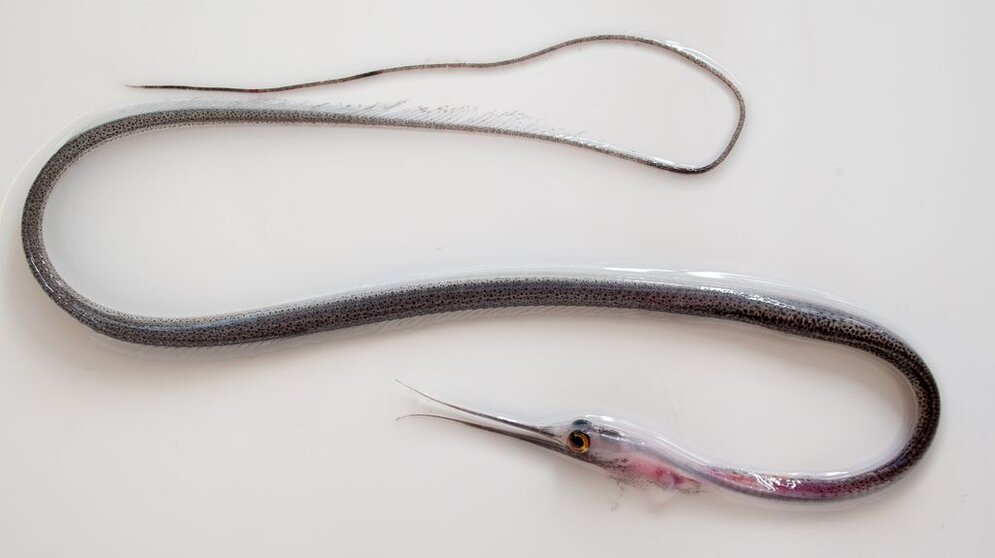

Approach
On the basis of survey data, descriptive quantitative modelling is carried out, using size-based and trait-based approaches:
- Fundamental ecological processes revolve around the body size of organisms. Environmental factors such as temperature affect body size, predator-prey relationships depend on the size ratio.
- Traits are functional features of organisms, that determine how they interact with their environment. We use traits that characterize mobility and feeding types.
We investigate how size spectra and functional diversity vary between key regions and along environmental gradients. Organism sizes and traits are also needed to establish food web structures.
Data and Methods
- On past research cruises and in new research projects (e.g. AWA, PREFACE, TRAFFIC), large-scale surveys were carried out with comprehensive fish size measurements. These two data groups are now analysed under new aspects.
- Hydroacoustics (underwater echo sound) are used to observe daily vertical migrations of mesopelagic fish. With different sound frequencies, the proportion of different size classes can be quantified.
- For filling gaps in the data, new scientific catches with special nets are carried out.
- Trait information from the literature is supplemented with own data.
Our Research Questions
What are the mean state and seasonal variability of
- diversity and size structures,
- vertical migrations and
- trophic relationships
in the mesopelagic fish communities of the South Atlantic?
How do these depend on external factors such as the trophic status of the environment?
How do the community characteristics differ between ecosystems of important key areas?
How will climate change affect the fish communities of the open ocean?
Links and Downloads
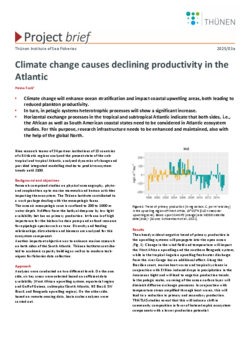 Project Brief TRIATLAS Fock (Project brief 2025 03a): Climate change causes declining productivity in the Atlantic
279 KB
Project Brief TRIATLAS Fock (Project brief 2025 03a): Climate change causes declining productivity in the Atlantic
279 KB
Involved Thünen-Partners
Involved external Thünen-Partners
- University of Bergen
(Bergen, Norwegen) - GEOMAR - Helmholtz Zentrum für Ozeanforschung Kiel
(Kiel, Deutschland) -
Stiftelsen Nansen senter for miljø og fjernmåling
(Bergen, Norwegen) - Institute of Marine Research (IMR) / Havforskningsinstituttet (HI)
(Bergen, Tromsø, Norwegen) - Leibniz-Zentrum für Marine Tropenforschung (ZMT)
(Bremen, Deutschland) - Christian-Albrechts-Universität zu Kiel
(Kiel, Deutschland) -
Météo-France
(Paris, Frankreich) - Centre Européen de Recherche et de Formation Avancée en Calcul Scientifique (CERFACS)
(Toulouse, Frankreich) - Institut de recherche pour le developpement (IRD)
( Marseille, Nouméa (Neukaledonien), Frankreich) -
Barcelona Supercomputing Center
(Barcelona, Spanien) - Universidad Complutense de Madrid (UCM)
(Madrid, Spanien) - University of Cape Town (UCT)
(Kapstadt, Südafrika) -
INDP - Instituto Nacional de Desenvolvimento das Pescas / National Fisheries Development Institute
( Mindelo, Kap Verde) -
Instituto Nacional de Investigação Pesqueira (INIP)
(Luanda, Angola) -
Universidad de Vigo
(Vigo, Spanien) -
Universidad de Las Palmas de Gran Canaria
(Las Palmas de Gran Canaria, Spanien) -
Université Félix Houphouët-Boigny
(Abidjan, Côte dŽIvoire) - Centre de Recherches Océanologiques (CRO)
( , Côte dŽIvoire) -
United Kingdom Research and Innovation
(Swindon, London, Bristol, Großbritannien (inkl. Nordirland)) - Universite D Abomey-Calavi (UAC)
(Abomey-Calavi, Benin) -
Universidade Federal do Rio Grande
(Rio Grande, Brasilien) -
Universidade Federal de Pernambuco
(Recife, Brasilien) -
Universidade Federal de Santa Catarina
(Florianópolis, Brasilien) -
Universidade Federal de Pernambuco
(Recife, Brasilien) - National University of Ireland Galway
(Galway, Irland) - Uni Research AS (UniRes)
(Bergen, Norwegen) - Institut Sénégalais de Recherches Agricoles (ISRA)
(Dakar, Senegal) - Agencia Estatal Consejo Superior de Investigaciones Científicas (CSIC)
(Madrid, Cordoba, Spanien) -
Universidade de Cabo Verde
(Praia, Kap Verde) -
Universidade Federal do Rio Grande do Norte
(Natal, Brasilien) -
Department of Agriculture, Forestry and Fisheries, South Africa
(Pretoria, Südafrika) -
Sorbonne Université
(Paris, Frankreich) -
University of Namibia
(Windhoek, Namibia)
Funding Body
-
European Union (EU)
(international, öffentlich)
Duration
6.2019 - 11.2023
More Information
Project funding number: Grant Agreement Number: 817578
Funding program: EU – Horizon 2020 – Societal Challenge "Food Security, Sustainable Agriculture and Forestry, Marine, Maritime and Inland Water Research and the Bioeconomy"
Project status:
finished
Publications
- 0
Fock HO (2025) Climate change causes declining productivity in the Atlantic. Bremerhaven: Thünen Institute of Sea Fisheries, 2 p, Project Brief Thünen Inst 2025/03a, DOI:10.3220/PB1736933377000
- 1
Fock HO (2025) Klimawandel bringt sinkende Produktivität im Atlantik. Bremerhaven: Thünen-Institut für Seefischerei, 2 p, Project Brief Thünen Inst 2025/03, DOI:10.3220/PB1736933066000
- 2
Andresen H, Eduardo LN, Olivar MP, van Denderen PD, Spitz J, Maureaud AA, Brind'Amour A, Bowlin NM, García-Seoane E, Langbehn TJ, Sutton TT, Fock HO, Salvanes AGV, Lindegren M (2025) Mesopelagic fish traits : functions and trade-offs. Fish Fisheries 26(1):83-103, DOI:10.1111/faf.12867
- 3
Brinkman FRV, Smolinski S, Fock HO, Bordbar MH, Kreiner A, Kalola MS, Wilhelm MR (2025) Post-collapse somatic growth and population recovery failure of sardine (Sardinops sagax) in the northern Benguela from otolith biochronologies. Fish Res 285:107352, DOI:10.1016/j.fishres.2025.107352
- 4
Duncan SE, Hagen W, Fock HO (2024) Mesopelagic fish assemblages in the Mauritanian Upwelling System off Northwest Africa with oxygen as a major driving force. Mar Ecol Progr Ser 733:95-110, DOI:10.3354/meps14524
- 5
Knorrn AH, Wieben KL, Fock HO, Andresen H (2024) Reproductive biology of the electric lanternfish Electrona risso (Myctophidae) and the bigscale fishes Melamphaes polylepis and Scopelogadus mizolepis (Melamphaidae). J Fish Biol 104(1):252-264, DOI:10.1111/jfb.15575
- 6
Knorrn AH, Wieben KL, Fock HO, Andresen H (2023) Reproductive data of Electrona risso, Melamphaes polylepis and Scopelogadus mizolepis from the Eastern Central Atlantic in March and April 2015 [Datenpublikation] [online]. Bremerhaven: PANGAEA, zu finden in <https://doi.pangaea.de/10.1594/PANGAEA.962192> [zitiert am 11.01.2024], DOI:10.1594/PANGAEA.962192
- 7
Duncan SE, Fock HO, Sell AF, Hagen W (2023) Trophic ecology of mesopelagic fishes in the northern and southern Benguela Upwelling Systems revealed through stable isotope patterns. Mar Ecol Progr Ser 725:75-93, DOI:10.3354/meps14455

![[Translate to English:] [Translate to English:]](/media/_processed_/7/1/csm_IMG_7977_large_1defaf5de1.jpg)

